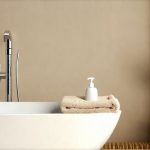The bathroom. For many, it’s less a room for necessary hygiene and more a central character in a daily drama – a source of anxiety, frustration, and an astonishing amount of time spent. Whether it’s obsessive checking of appearances, lengthy rituals around skincare, or simply the relentless cycle of managing chronic conditions that demand frequent trips, our lives can become disproportionately tethered to this small space. It’s easy to fall into patterns where self-worth is tied to appearance, where routines become rigid compulsions, and where even a simple trip to the bathroom feels loaded with pressure. This isn’t about demonizing self-care or denying genuine needs; it’s about reclaiming agency over our time and emotional energy, building a life that acknowledges these necessities without being defined by them.
This article is for anyone who has ever felt overwhelmed by their bathroom routine, whether it stems from body image concerns, chronic illness, compulsive behaviors, or just the relentless demands of modern beauty standards. We’ll explore practical strategies and mindset shifts to help you disentangle your life from this often-overpowering space, fostering a sense of freedom and allowing you to redirect energy towards passions, relationships, and experiences that truly enrich your life. It’s about finding balance—a place where taking care of yourself doesn’t become the very thing that prevents you from living fully.
Reclaiming Your Time & Mental Space
The first step in building a life less revolved around the bathroom is honest self-assessment. What specifically takes up your time and mental energy? Is it an elaborate skincare routine, frequent hair styling, anxiety about appearance before leaving the house, or something else entirely? Be brutally honest with yourself – this isn’t about judgment, but about identifying areas for potential change. Often, we’re not even aware of how much mental bandwidth these routines consume until we consciously examine them. Keep a “bathroom log” for a few days: note how long you spend in the bathroom each time, and what you were doing. This can be surprisingly revealing.
Beyond time spent, consider the emotional weight attached to your bathroom habits. Do you feel anxious if you don’t apply makeup before leaving? Do you constantly compare yourself to others based on appearance? Are you driven by a fear of judgment or imperfection? Identifying these underlying anxieties is crucial for addressing them effectively. Remember that many beauty standards are socially constructed and often unrealistic – they’re not inherent truths about your worth. Cultivating self-compassion is paramount. Treat yourself with the same kindness and understanding you would offer a friend struggling with similar issues.
Finally, explore whether any routines have become compulsive. This isn’t necessarily about formal diagnoses; it’s about recognizing patterns that feel rigid and uncontrollable, even when they cause distress. For example, repeatedly checking for blemishes or washing hands excessively can be signs of underlying anxiety needing attention. If you suspect a more serious issue, seeking support from a mental health professional is always recommended.
Understanding the Root Causes
Often, bathroom-centric behaviors are symptoms of deeper issues. Consider the pervasive influence of social media and advertising, which constantly bombard us with images of “ideal” beauty and unattainable standards. These messages can contribute to body image insecurities and drive obsessive self-grooming habits. We’re taught from a young age that our worth is often tied to appearance, leading to a relentless pursuit of perfection. It’s important to critically evaluate these external pressures and actively challenge their influence on your self-perception.
Another significant factor can be past experiences related to body image or self-esteem. Traumatic events, negative comments from others, or even seemingly innocuous remarks can leave lasting scars that impact how we view ourselves. These unresolved issues often manifest as compulsive behaviors or excessive focus on appearance. Therapy can provide a safe and supportive space to explore these experiences and develop healthier coping mechanisms.
Furthermore, chronic illness or medical conditions can understandably contribute to increased bathroom usage and anxiety surrounding bodily functions. This is where finding acceptance and self-care strategies become especially important – not in the pursuit of “normalcy,” but in learning to navigate your condition with grace and compassion. Remember that self-care isn’t selfish; it’s essential for well-being, particularly when managing chronic health challenges.
Deconstructing Rituals & Building New Habits
Once you understand the root causes, you can begin to deconstruct problematic rituals and build new habits. Start small. Don’t try to overhaul your entire routine overnight; that’s a recipe for failure. Instead, identify one area where you can make a change. For example, if you spend an hour applying makeup each morning, challenge yourself to go without it one day a week. Or, if you obsessively check your appearance in the mirror, limit yourself to checking only once before leaving the house.
Replace old habits with new, more fulfilling activities. If you’re used to spending hours scrolling through social media while getting ready, replace that time with listening to music, reading a book, or practicing mindfulness. The goal is to redirect your attention and energy towards things that nourish your soul rather than fuel insecurities.
Consider creating “buffer zones” – periods of time where you intentionally disconnect from appearance-focused activities. This could involve leaving your phone in another room while getting ready, avoiding mirrors altogether for a certain period, or simply focusing on other tasks that require concentration. These buffer zones allow you to detach from self-criticism and reconnect with yourself beyond your physical appearance.
Embracing Imperfection & Self-Acceptance
Ultimately, building a life less revolved around the bathroom requires embracing imperfection and cultivating self-acceptance. This is perhaps the most challenging aspect of this journey, as it goes against deeply ingrained societal pressures. However, it’s also the most rewarding. Recognize that everyone has flaws – they are part of what makes us human. Stop striving for an unattainable ideal and start celebrating your unique qualities.
Practice self-compassion. When you inevitably slip up or find yourself falling back into old habits, don’t beat yourself up about it. Instead, acknowledge the setback with kindness and understanding, and reaffirm your commitment to progress. Remember that change is a process, not a destination.
Focus on what you can control: your thoughts, actions, and choices. You can’t control how others perceive you, but you can control how you perceive yourself. Choose to focus on your strengths, passions, and values – the things that truly define who you are beyond your physical appearance. This shift in perspective will not only free you from the tyranny of the bathroom but also empower you to live a more authentic and fulfilling life.


















